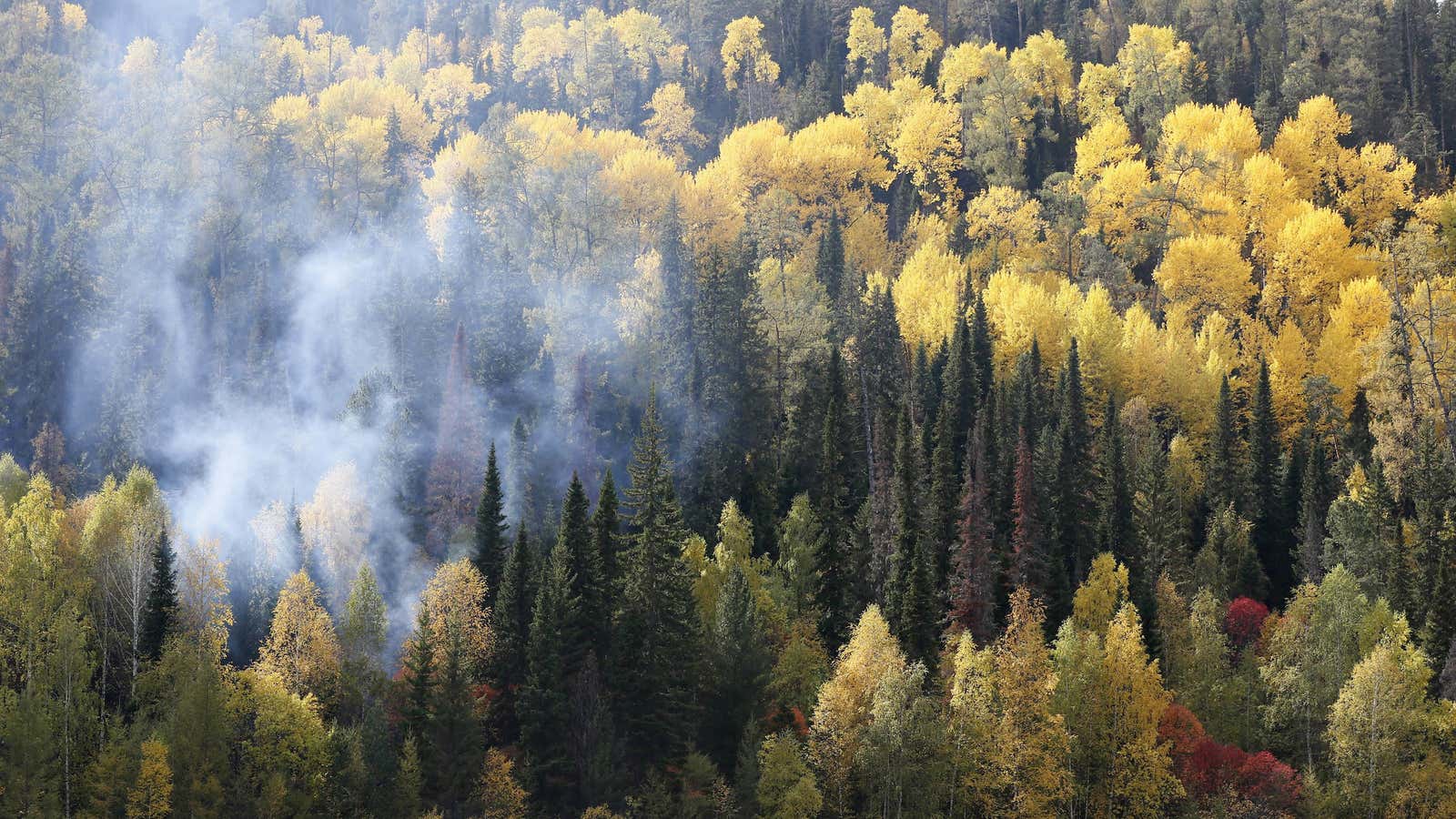The American travel writer and humorist, Ian Frazier, once remarked that “Siberia is so big, it’s almost more an idea than a place.” Indeed, the “idea” of Siberia is important, and since the publication of Frazier’s 2010 opus, Travels in Siberia, the region has seen an uptick in nationalism, which has significant implications for the Russian Federation.
Russian Siberia conjures images of complete isolation and devastatingly unforgiving winters, making it an unusual place for a nationalist awakening. The region spans 13 million square kilometers—constituting 77% of Russia’s total land-mass—but has a population of only 40 million, making it one of the most sparsely populated areas on Earth.
Siberia was first invaded by Russia in the 16th and 17th centuries, after the Siberian Khanate, which was a significant part of the Mongol Empire, transformed from a centralized political entity into loose vassal-states incapable of successfully mobilizing against the Europeans. In the centuries that followed, Siberian peasants rejected the feudalism that came to define the rest of Russia, largely because of their colonial history. Nineteenth century Russian anarchist Peter Kropotkin noted that “Siberians had a strong feeling of superiority over Russian peasants,” who accepted feudalism’s strictures.
Over the centuries, Siberias’ inhabitants, including its ethnic Russian population, developed a very distinctive identity—a sort of swash-buckling frontier spirit akin to the American pioneers. But, a sense of nationalism really began to grow in the region after the publication of Siberia as a Colony by the great Russian explorer Nikolai Yadrintsev. In his book, Yadrintsev argued that the Russian tsar was exploiting Siberia’s abundant natural resources through an unfair trade and revenue system. As one example, until 1913, a strict tariff plan was in place to reduce competition between grain producers in European and Siberian Russia. In order to make European Russian grain more attractive, the price for Siberian grain was set 30% higher, both in the Russian empire and international markets.
These tensions between Moscow and Siberia are still evident today. In 2012, for example, the Siberian region of Tomsk delivered 130 billion rubles in tax revenue to Moscow, but received just 10.3 billion rubles in investment from the Russian government. In order to satisfy its fiscal needs, the region was forced to take on loans from commercial banks. Since 2004, Vladimir Putin’s centralizing reforms have also given the Russian government more control over selecting regional governors, transforming these officials into “mouthpieces of federal policy” and inflaming hostility toward Moscow.
Interestingly, as the Siberian national movement has grown, it has become particularly strong among the region’s ethnic Russian population, with indigenous groups more rooted and connected to local towns and villages. For example, in a survey taken in Buryatia (one of the largest autonomous republics in Siberia), only 42 indigenous Buryats out of a total population of 286,839 were willing to identify themselves as Siberian.
The national movement is especially potent in larger Siberian cities with intellectual centers—like Novosibirsk, Tomsk, Omsk, and Irkutsk. In Novosibirsk, a major rally under the slogan “Stop Feeding Moscow!” was held in Oct. 2011, demanding a change in tax allocation mechanisms, so that regions like Siberia can claim larger shares of hydrocarbon revenues. The movement was unsuccessful, but with 90% of Russian natural gas and over 70% of oil produced in Siberia, the event seriously ruffled Moscow’s feathers.
In Aug. 2014, central authorities banned a proposed “March for the Federalization of Siberia,” also in Novosibirsk, with several organizers arrested and a widespread media blackout imposed on the region. Putin justified the crackdown by playing up common fears among Russian nationalists about outside powers annexing Siberia and shattering the Russian state. As The New York Times quoted the Russian president as saying, “We have heard that it is unfair that the whole of Siberia, with its immense resources, belongs to Russia. So it is fair to snatch Texas from Mexico, but it is unfair that we are working on our own land?”
Talk of political conspiracies about outside enemies and fifth columns will only go so far, however. If the status quo continues—and Siberians continue to feel exploited by the central governmen—the Russian Federation may be faced with a serious political crisis.
